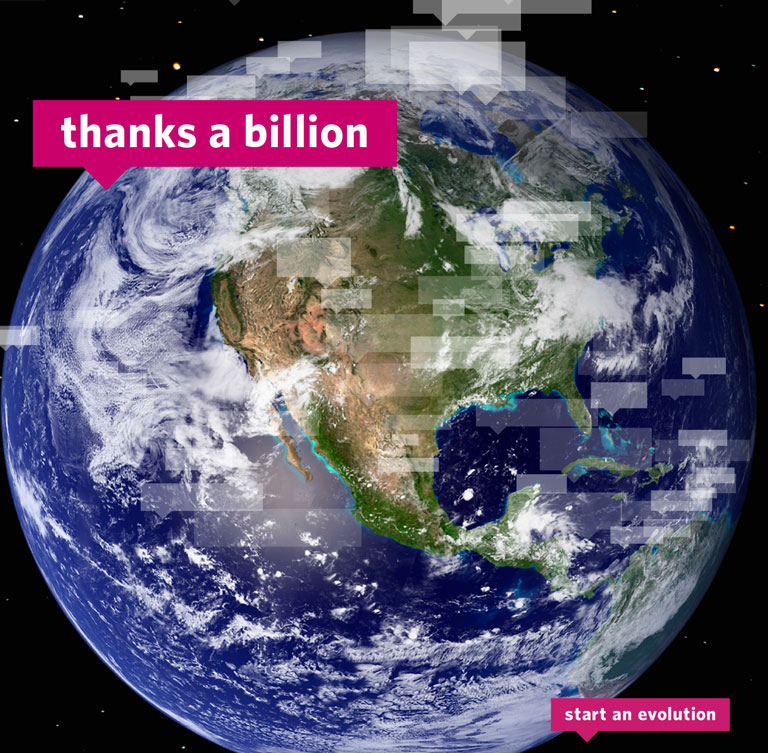Start an Evolution
It doesn’t always take a revolution to make change. In fact, this year UBC proved change can happen through evolution, as it evolved toward greater advancements in student learning, research, and community engagement with its start an evolution campaign. Publicly launched in September 2011 by Development and Alumni Engagement, the fundraising and alumni engagement effort is the largest of its kind in Canada. With dual goals of raising $1.5 billion and engaging 50,000 alumni annually by 2015, the campaign is now well over two-thirds of the way towards its objectives.
Donors and alumni from around the world can opt to support projects that align with their interests, contribute to scholarships and awards, or engage with the university in ways that suit them best. And they have done so en masse. “I am deeply grateful to our alumni and donor community for their overwhelming support in this campaign,” says President Stephen Toope. “Their generosity and involvement is providing more student aid, improving learning environments, and extending the impact of research and community engagement. With their help, UBC can really be a catalyst for change and transformation.”
It may be an evolution in UBC’s way of operating, but the economic sustainability that comes from the generous contributions of alumni and donors not only ensures UBC’s reputation as a stable, viable catalyst for change, but also goes toward launching and maintaining many of the university’s change-making projects. Donations have enabled projects like the opening of the Wayne and William White Engineering Design Centre, which connect students from all of UBC’s engineering programs in order to promote interdisciplinary teamwork, and allows UBC students to develop innovative solutions to issues facing society. Learn more about start an evolution and the campaign’s success stories.
Related Content

“I am deeply grateful to our alumni and donor community for their overwhelming support in this campaign. Their generosity and involvement is providing more student aid, improving learning environments, and extending the impact of research and community engagement.” – President Stephen Toope